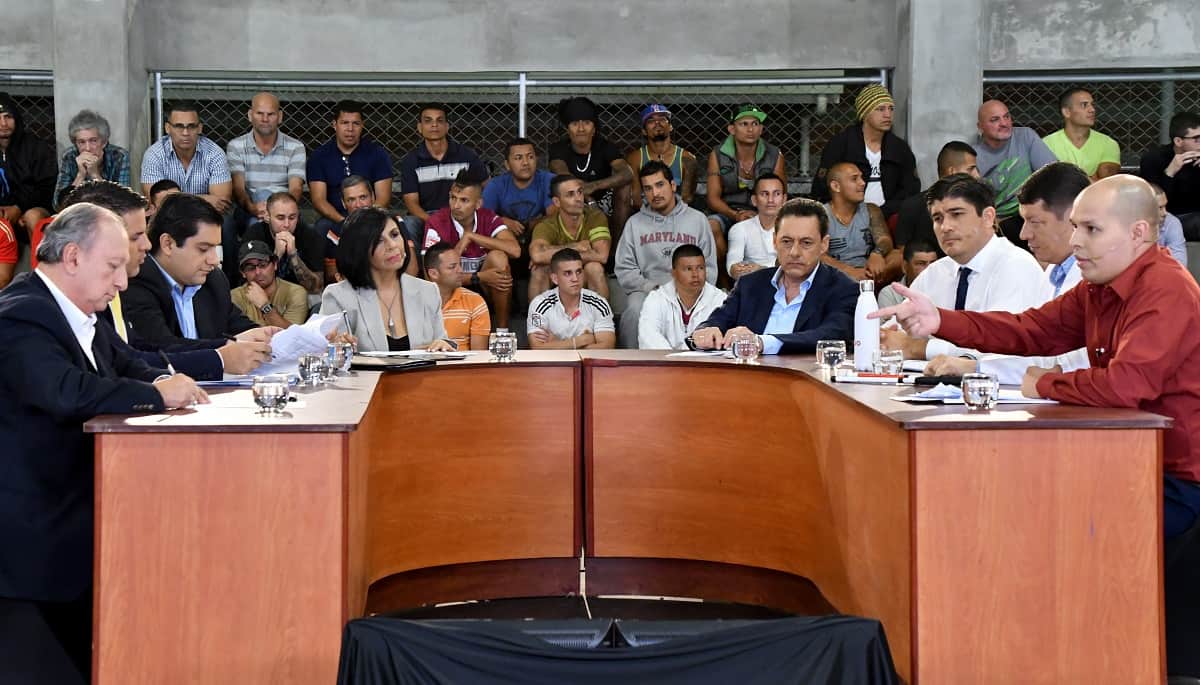The electoral “truce” is over, but it wasn’t much of a truce, for two reasons. First, before the mandatory ad-free period began over Christmas, the 2018 presidential campaign was like the dance segment that precedes a boxing match. And second, the electoral truce was conceived in an analog era, and is no match for the flow of information and publicity on digital platforms.
January is here: there’s now less than a month until our elections, and voters’ opinions are varied. Just over one-third of voters express an inclination for one candidate; another third want to vote but can’t find anyone worthy of that vote; and another third are reluctant to participate.
It looks like we’ll have a second round, and there are some voters who’d prefer to let others decide who will compete in that runoff and postpone their own decision until Easter Sunday. “Dios nos agarre confesados,” Costa Ricans often say when something dangerous is on its way – more or less, “We’d better get to Confession so we’re ready in case God comes for us” – and this year it may be that Holy Week leads many to confess before they vote.
It’s January, and most-watched debates are here, those which motivate some to claim one candidate as the “winner” and others as the “losers.” The errors of some candidates may be on display there, the pyrotechnic character of another and the lack of preparation of more than one. Of course, we might also see realistic and ambitious proposals, but I doubt it.
Neither should we expect that most citizens will see the debates. Some watch them with the hope of entertainment and casualties, as they watch the bull fights. Others watch seriously, hoping for help in their decision-making process. Maybe they want to see the candidates’ personalities, their capacity to react, their emotional intelligence, and the proposals they can explain in 90 seconds flat.
The candidate best positioned in the polls, famed lawyer Juan Diego Castro, could have an advantage with those voters: he’s a master of histrionics, although he also risks facing questions on issues he is unfamiliar with.
Businessman Antonio Álvarez Desanti, of the National Liberation Party (PLN), has been losing support, and charisma is obviously not his strong suit. He can’t offer sparks or charms in the debates, but he has many issues at his fingertips. He should be careful when talking about his party, because there are figueristas [party members who were supporters of José María Figueres in the primaries] who are not supporting him or have even migrated over to the Castro camp.
Rodolfo Piza, of the Social Christian Unity Party (PUSC), is in third place and could slide into a second round, but this depends less on his own virtues or those of his party, and more on others tripping up. Close associates have been questioned regarding the “cementazo” and Piza’s image is still very much one of a 20th-century man trying to appear a little less square by throwing in some popular sayings… and it’s not working.
But keep a eye on Piza. Over the holidays I talked to friends and family from the Liberation Party who plan to vote for him in the presidential race and for Liberation in the legislative contest. That’s why I say that Piza, if he’s careful, could benefit from the problems of others.
Costa Rica approaches presidential elections with an uncertain scenario
When I say “others,” I also mean Rodolfo Hernández (Social Christian Republican), who has major weaknesses in style and content that debates can expose. And Carlos Alvarado, from the Citizen Action Party (PAC), who is burdened by the deterioration of the current administration and a personality better suited to moderate the debates than participate in them.
These are the frontrunners, although with significant differences among them in the polls, including the last one administered by the Center for Research and Political Studies (CIEP) at the University of Costa Rica (UCR) before the truce. I don’t see what can change the panorama, but I do not dare to rule out any major shift.
I still believe that debates can play an important role in voters’ decisions, even if that role is only to help them rule out certain options, which appears to be the approach of many. At the end, someone will have to gain significant support – whether with a strong mandate or squeaking through, someone will win.
Ads can have a significant effect, both traditional ads that costs millions of colones, or propaganda in our highly flammable social networks, to which many undecided voters have access. New coverage can also play a role, although I hope more media will cover the campaign in an astute and straightforward manner, and that fewer will become megaphones for whatever lie the candidates care to spit out.
So January is here, and many prefer not to rush and wait until the last minute to make a decision. IN 2014, a third of voters made up their minds in the last week of the campaign (CIEP, 2014), and it could be the same this year. Many who today are with one party, tomorrow will be with another. This will continue until the music ends, like a game of musical chairs.






